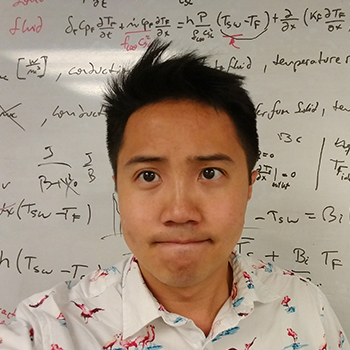
I didn’t spend any money for 1 month and this is what happened
You probably don’t need to try this yourself
I share my office with a pugnacious Australian graduate student, who delights in competition and regularly poses challenges to me. One afternoon, he provoked me with a contest to determine who could function longer without spending money. He claimed that he had grown tired of the trivial grievances of our contemporaries and wanted to show them how easy it was to survive (literally) at MIT. Me, being the second-least responsible adult between the two of us, accepts his challenge immediately. We agree on the terms and conditions: 1) we are not to use items previously purchased, 2) recurring bills (just rent and utilities) can be excluded from the competition.
An optimistic start
Luckily, the challenge began on the day of our department seminar where a large surplus of Italian fare (pizza) and calorically-intensive soda pops were provided. We found toiletries in public restrooms and MIT gymnasiums. Fundamentally, our most basic necessities were met for the first couple days. Being proactive, we signed up for the MIT free-food mailing list. As a result, our inbox saw a handful of alerts each day detailing the locations where provisions were up for public offer. That weekend, I consumed nothing more than 12 plain bagels without any condiments. I found it to be sufficiently acceptable and I felt empowered.
When things started to get challenging
After the first week, we quickly realized that we were not the only ones scouring the mailing list. Often, we would arrive at an advertised location to realize that others preceded us, leaving nothing behind. One evening, we were working in our office after having not eaten for more than 24 hours when suddenly, a food notification appeared on my screen. I still remember the rush of adrenaline that coursed through me as we raced through the infinite corridor. At the end of a hallway, we could see more than 20 sandwiches on a platter next to a full plate of cookies. Just one person was present, looking apprehensively at us while they loaded sandwiches into their backpack. For a moment, we paused and intensely locked eyes with them. As we began to move, this person (presumably a grad student), grabbed the platter in one arm, the plate in the other and walked right past us. If that person is reading this right now, I would like them to know that they absolutely ruined that evening for us.
When desperation drives creativity
We learned that we could not rely solely on remains from others. We needed to go directly to the source of the mailing list: dozens of seminars, talks, workshops, conferences occurring at MIT each day. Through the MIT event calendar, we learned of many events across different fields. Suddenly, we found ourselves actively immersed in a diverse array of topics such as biotechnology, software development, artificial intelligence and chemical engineering. We attended lunch-and-learns on agriculture and discussed “disrupting” technologies at the Sloan business school. We participated in a clean water innovation exposition, where we proposed cost-effective alternatives to traditional disinfection methods. We found a new steady-state mode of operation where we were both mentally challenged and physically sustained.
How it came to an end and what we learned
At four weeks into the challenge, I had guests from out-of-town come to visit me and I wished to show them around Boston. At that point, I made the conscious decision to set aside my pride, ego and sense of self-worth. I bought a train ticket into downtown Boston and was finally bested. At the end of it all, we came out relatively unscathed. My office-mate had one allergic reaction from eating unlabeled food but was promptly treated by MIT medical (without requiring co-pay). I suffered nothing more than temporary discomfort on odd evenings when I did not have the time or tenacity to search for food.
Through this exercise, we confirmed our suspicions that it is relatively easy to subsist around MIT and discovered a variety of resources. Anyone who is interested in doing something similar need not hesitate to tweet me for more details. While I am not at all convinced that we accomplished anything of value, I am humbled by and grateful for the intellectual (and consequently nutritional) contributions of the MIT population at large.
Share this post:
